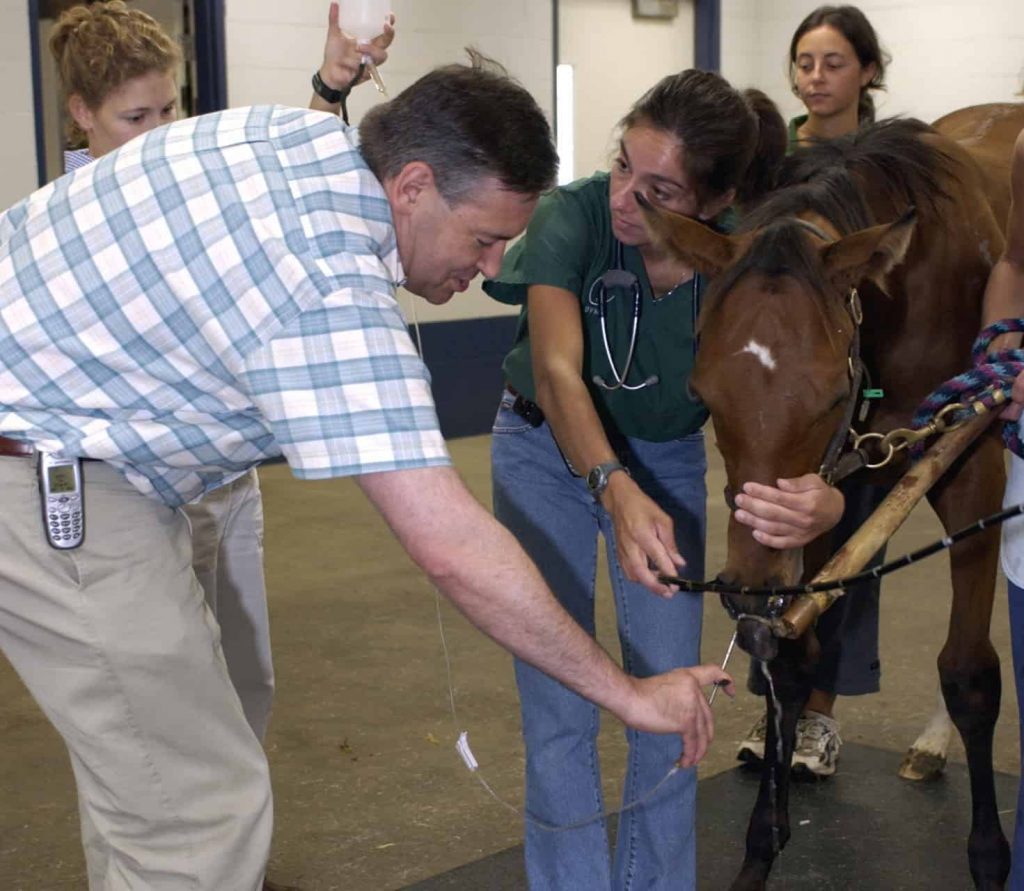
Equine Respiratory Biosurveillance: What Have We Learned?
Since 2008 the University of California, Davis, School of Veterinary Medicine and Merck Animal Health have worked to cultivate a strong biosurveillance program.

Since 2008 the University of California, Davis, School of Veterinary Medicine and Merck Animal Health have worked to cultivate a strong biosurveillance program.

Researchers have determined that testing bronchoalveolar lavage fluid might be the most accurate way to diagnose horses with equine asthma.

Researchers are working to find a way to individualize equine asthma treatment and are looking for more horses to participate in this study.

Many respiratory conditions affecting horses cause similar signs, so it is vital for owners and veterinarians to pursue a diagnosis and create a treatment plan.

Steaming might be the more effective option for reducing allergens in hay.

Recurrent airway obstruction is a medical condition, but feed changes might help your horse breathe better.

Does alfalfa cause kidney or respiratory problems or make horses hyper? Specialists shed light on these myths and more.

Horses exposed to fire smoke can suffer respiratory injury; knowing what is normal can help you determine whether your horse might need veterinary attention.

Learn more about equine asthma, acute respiratory infections, and shipping fever in horses.

Use this visual guide to learn about lower respiratory problems that can affect your horse.

Is your horse’s cough something to be concerned about?

Equine infectious respiratory disease and asthma projects receive $75,000 in Advancement in Equine Research Awards funding.

A wide range of conditions can cause poor performance, but many cases circle back to lameness with a behavioral component.

Keep dust to a minimum in arenas, barns, and paddocks for both aesthetic and health reasons.

Follow the steps in this visual guide to help your horse breathe easier.

Learn about recent research on the causes of EIPH, how it affects horses and their performance, and furosemide use in equine athletes.
Stay on top of the most recent Horse Health news with
"*" indicates required fields